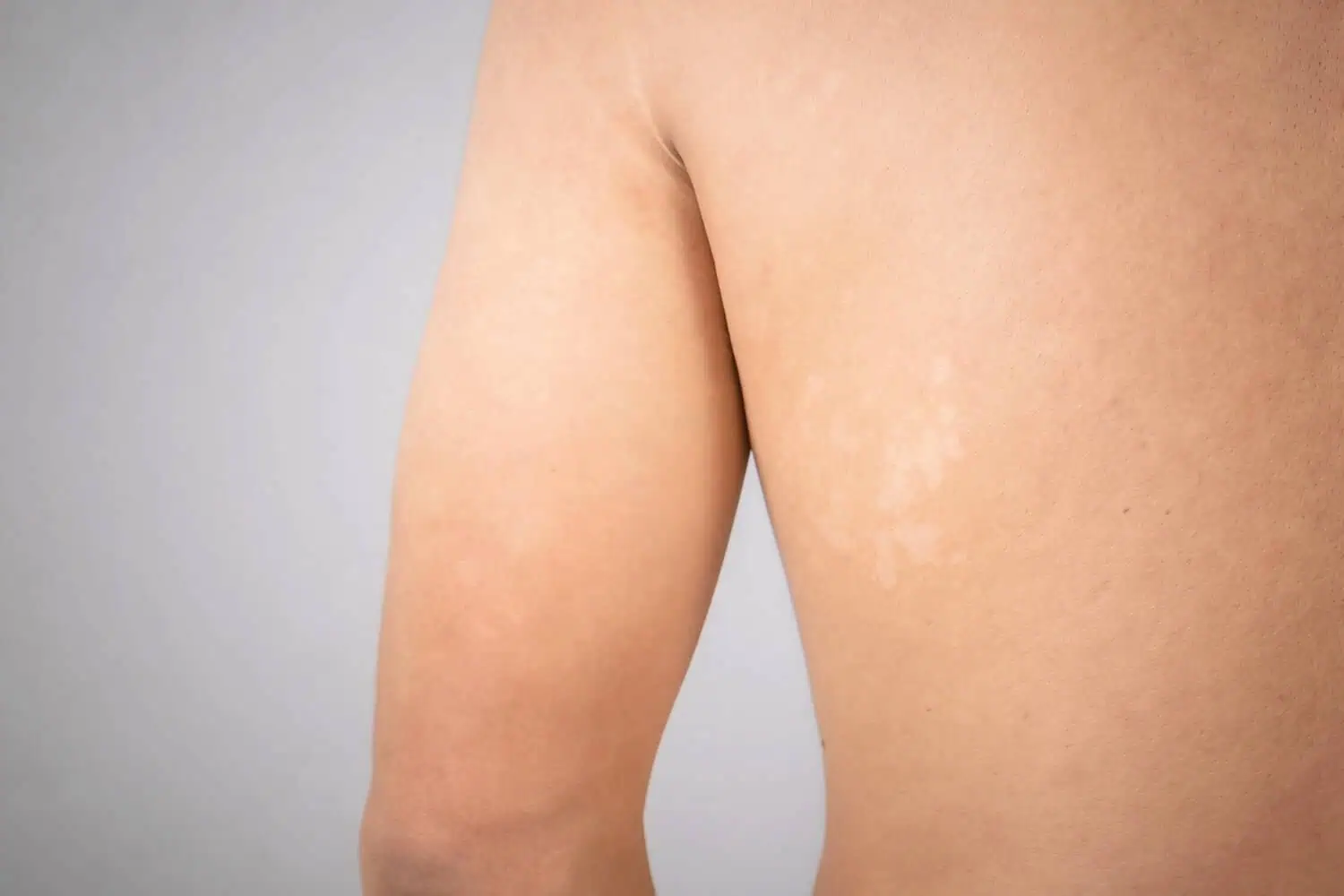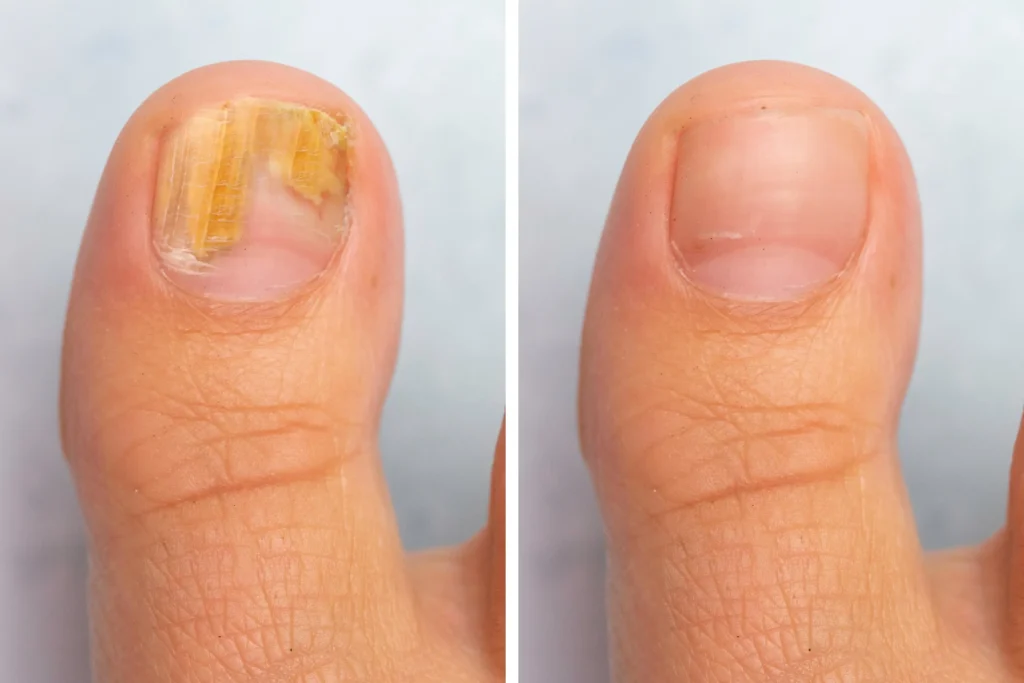Fungal Treatment in NYC

Fungal Treatment in NYC
Fungal infections can be more than just a minor annoyance—they can cause persistent discomfort, skin damage, and even spread if left untreated. At Park Plaza Dermatology, we provide fungal treatment in NYC that targets the root of the infection, helping patients regain healthy skin, nails, and scalp. Whether you’re dealing with stubborn athlete’s foot, nail fungus, or a recurring skin condition, our team offers specialized treatments, including prescription antifungals, laser therapy, and medicated shampoos.
What is Fungal Treatment and How it Works
Fungal infections, or mycosis, are caused by various types of fungi that thrive in warm, moist environments. These infections can affect the skin, nails, and scalp, leading to symptoms such as redness, itching, peeling, and nail discoloration. Fungal infections are highly contagious and can spread through direct contact or contaminated surfaces.
At Park Plaza Dermatology, we offer advanced fungal treatment options, including topical and oral antifungal medications, laser therapy, and medicated shampoos. Our team of dermatology experts tailors treatments to each patient’s condition, ensuring effective relief and long-term results.
Reasons for Undergoing Fungal Treatment
Fungal infections may start as a mild irritation but can quickly worsen if left untreated. Seeking professional fungal treatment can help
- Eliminate persistent infections that do not respond to over-the-counter treatments.
- Prevent the spread of infection to other parts of the body.
- Restore healthy skin, nails, and scalp.
- Reduce discomfort, including itching, burning, and pain.
- Avoid complications such as secondary bacterial infections or permanent nail damage.
- Improve overall confidence and hygiene by maintaining healthy skin and nails.
- Enhance mobility and comfort, especially in cases of severe nail infections that affect walking.
- Reduce the risk of reinfection through professional guidance on prevention strategies.
Fungal infections are common, but they require proper medical care to ensure complete eradication and to prevent recurrence. Our dermatologists provide customized solutions to help patients achieve long-term relief.
Fungal Treatment Before & After Pictures





The Fungal Treatment Process: What to Expect
Consultation
During your initial visit, our dermatologists will conduct a thorough examination, assess the severity of the infection, and discuss the most suitable treatment plan. This process may involve:
- Evaluating symptoms such as discoloration, scaling, and discomfort.
- Taking skin, nail, or scalp samples to confirm the type of mycosis present.
- Reviewing medical history and potential risk factors.
- Discussing treatment options and expected outcomes.
Based on your responses, our specialists will determine the best type of allergy test for you and outline the next steps.
Preparation
Before starting treatment, patients should follow basic hygiene practices and avoid using non-prescribed antifungal products, which may interfere with professional treatment. Our specialists may advise:
- Keeping the affected area clean and dry.
- Wearing breathable footwear to prevent moisture buildup.
- Avoiding the use of shared towels, socks, or nail tools.
- Disinfecting personal items to prevent reinfection.
- Starting a prescribed pre-treatment routine to prepare for specific therapies.
The Day of Procedure
Treatment options vary based on the type and severity of the mycosis
Topical antifungal treatments
Applied directly to the affected area to eliminate fungal growth.
Oral antifungal medications
Recommended for stubborn infections that require systemic treatment.
Laser therapy
A non-invasive option for treating fungal nail infections with precision.
Medicated shampoos
Designed to clear fungal infections of the scalp effectively.
Cryotherapy or minor surgical removal
Used for severe, resistant infections that do not respond to conventional treatments.
Fungal Treatment Recovery Timeline
The healing process depends on the type of infection and treatment method
Mild infections
Improvement can be seen within a few weeks with topical treatments.
Moderate infections
Oral medications may take a few months for full recovery.
Severe cases
Nail mycosis may take 6-12 months to resolve, especially with laser therapy.
Scalp infections
Often improve within 4-6 weeks with medicated shampoos and oral antifungals.
Recurring infections
Patients may require maintenance therapy or lifestyle adjustments to prevent reinfection.
Following a dermatologist’s recommendations helps accelerate recovery and prevent reinfection.
The Cost of Fungal Treatment
The cost of fungal treatment varies depending on several factors, including the severity of the infection, the type of fungus involved, and the treatment method used. Mild fungal infections, such as localized athlete’s foot or minor nail fungus, can often be treated with topical antifungal creams or medicated shampoos, which are generally more affordable. However, more persistent or widespread infections may require oral antifungal medications, laser therapy, or combination treatments, which can increase costs. Additionally, the number of treatment sessions needed and whether follow-up visits are necessary will also affect the overall expense. Because fungal infections can be stubborn and prone to recurrence, investing in early and effective treatment can help prevent complications and long-term damage to the skin, nails, or scalp.
At Park Plaza Dermatology, we believe in transparent pricing and offer personalized treatment plans tailored to each patient’s specific condition and needs. While some fungal treatments are covered by insurance, particularly for medically necessary cases, others—such as laser therapy for nail fungus—may be considered cosmetic and require out-of-pocket payment. Our team will assist with insurance verification and flexible payment options to ensure that patients receive the highest quality care without financial strain. During your consultation, our dermatologists will provide a detailed breakdown of costs and discuss the most cost-effective approach to achieving long-term relief from fungal infections.
Why Choose Park Plaza Dermatology for Your Fungal Treatment?
Park Plaza Dermatology is a top-rated provider of fungal treatment in NYC, offering
- Experience Providers, specializing in mycosis treatments.
- State-of-the-art technology, including laser therapy for nail fungus.
- Personalized treatment plans tailored to each patient’s needs.
- Comprehensive care, addressing both the infection and prevention strategies.
- Convenient NYC locations for easy access to expert dermatological care.
- A diverse patient base.
- Ongoing support with follow-up appointments and preventative measures to maintain results.
Frequently Asked Questions
Coverage depends on your insurance provider and the treatment method. Contact us to verify your plan and discuss potential costs.
Most treatments are safe, but oral antifungal medications may have minor side effects such as nausea or liver enzyme elevation. Laser therapy is a non-invasive option with minimal risk. Our dermatologists ensure you receive the safest and most effective care.
With proper hygiene and care, results can be long-lasting. Our team provides guidance on preventing reinfection through lifestyle changes, proper foot care, and ongoing monitoring.
If you experience persistent itching, redness, scaling, thickened nails, or hair loss in patches, consult our specialists for a professional evaluation.
Yes! Our dermatologists provide personalized tips to prevent reinfections, such as:
- Keeping feet and hands dry.
- Wearing moisture-wicking socks.
- Using antifungal powders or sprays.
- Disinfecting footwear and personal grooming tools.
- Avoiding prolonged exposure to damp environments.
Schedule Your Fungal Treatment in NYC Today!
Don’t let a fungal infection disrupt your life. At Park Plaza Dermatology, we provide expert fungal treatment to help you regain healthy skin, nails, and scalp. Our team is dedicated to offering advanced solutions tailored to your needs, ensuring long-term relief and prevention of reinfections.
